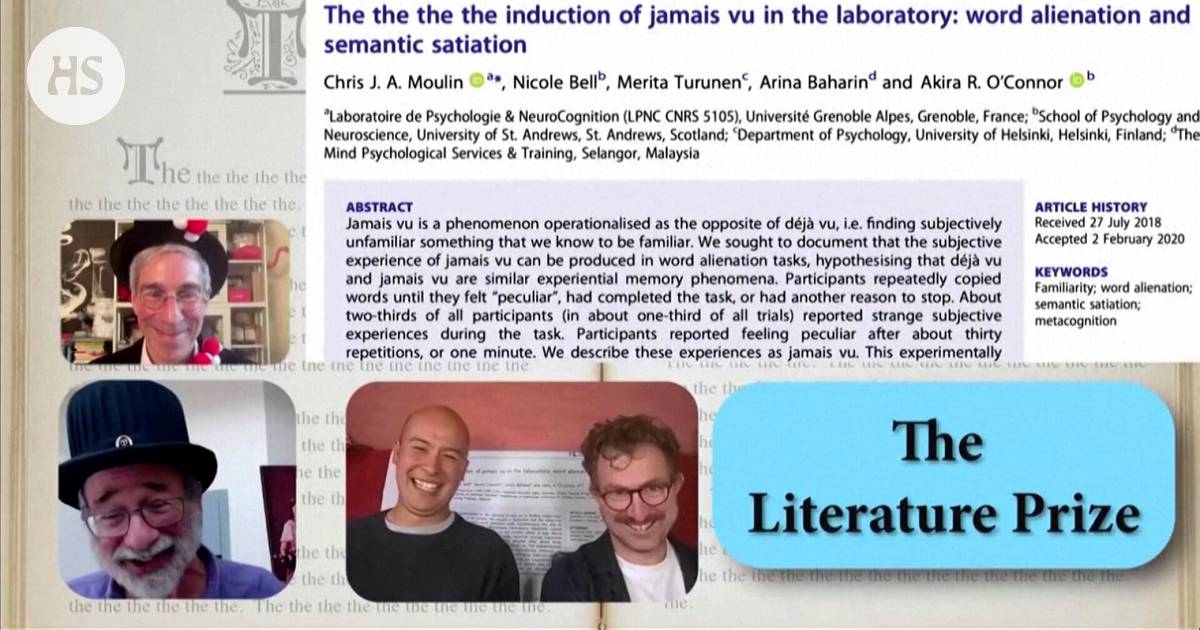The winners of the Humor Nobels will receive a 10 trillion Zimbabwean dollar bill as a prize.
Neuropsychology specialist psychologist Merita Turunen has received the Ig Nobel prize for literature as part of a research group. Together with an international group of researchers, Turunen found out why repeating the same word creates a strange feeling.
According to research published by the group, the phenomenon is an example never seen about the situation. Never seen is a situation where a person cannot remember, for example, a word that is already familiar to him. So that’s it already seen – the opposite of the concept.
Even the English name of the study plays with the phenomenon: The the the the induction of jamais vu in the laboratory: word alienation and semantic satiation. The study was published in Memory publications in 2021.
Already over The lg-Nobels, which have been distributed for 30 years, are also called humor Nobels. They are divided into scientifically conducted studies, but which cause confusion and hysterics. Ig Nobel is a translation of the English word meaning low or ignoble ignoble.
Joke Nobels are awarded every year in September, while the real Nobels are announced in October. However, the events are not related to each other in any way. The Ig Nobels are organized by the science humor magazine Annals of Improbable Research.
Humor Nobels are awarded in several categories. The winners this year will receive a 10 trillion Zimbabwe dollar note. However, a banknote used in a country suffering from hyperinflation is practically worthless.
The award were accepted by researchers Chris Moulin and Akira O’Connor. In a video shared by Annals of Improbable Research, they demonstrate the phenomenon with a common English definite article the.
The participants in the study copied the words repeatedly until they felt “weird”. This feeling arose after about thirty repetitions or one minute.
In others the Nobel Prize-winning research found out, among other things, how dead spiders can be used to lift things and why many researchers lick rocks.
Japanese researchers, on the other hand, were awarded for a study that found out how conducting electricity to chopsticks and drinking straws changes the taste of food. The health science award was given to the developers of a toilet seat that analyzes feces, while the medicine award was given to a study that determined the number of nostril hairs.
